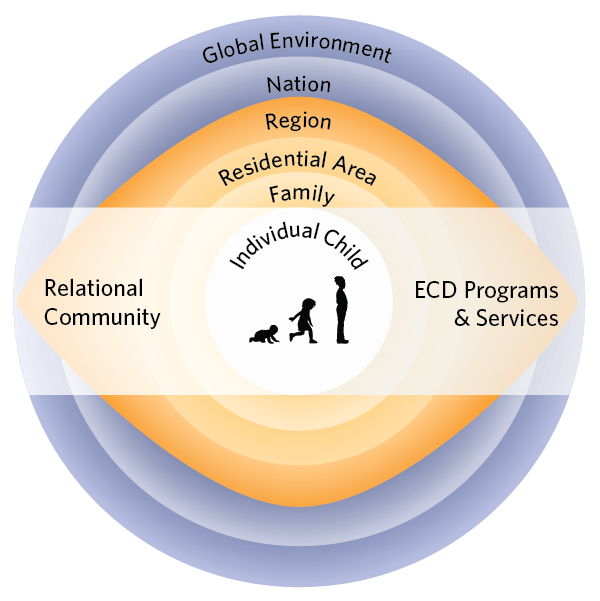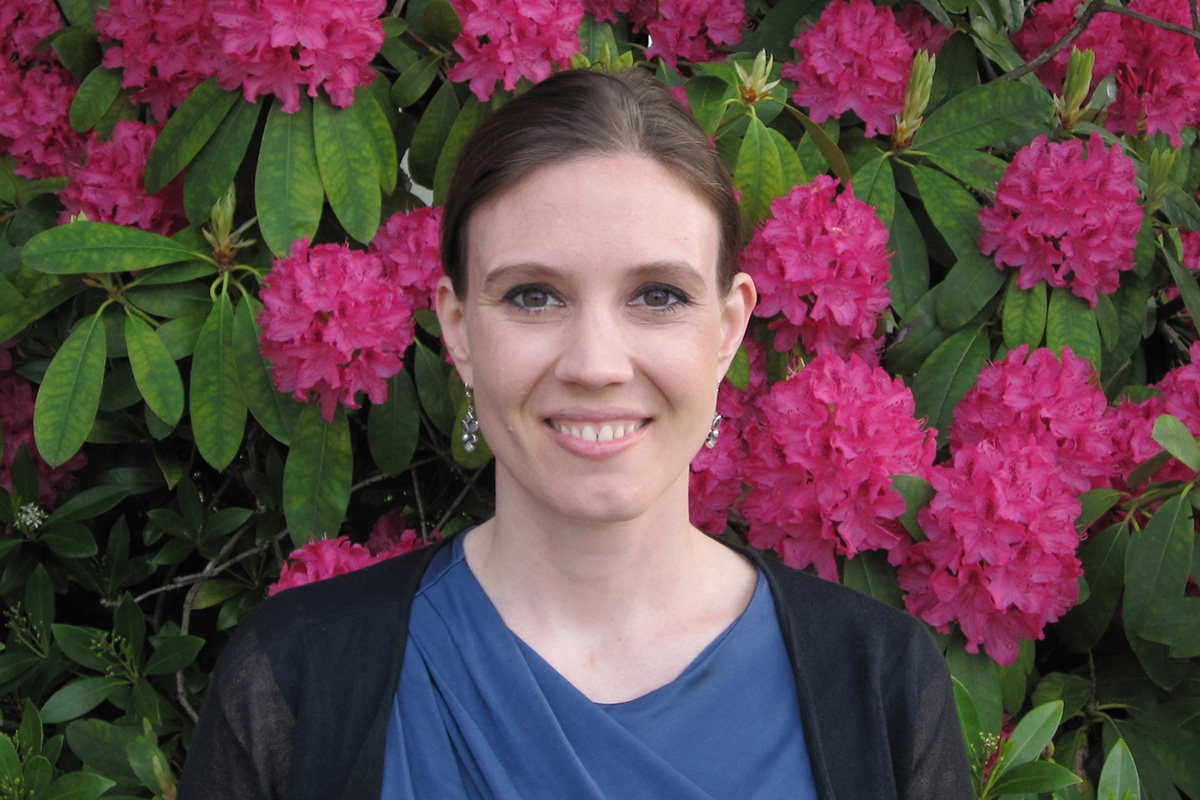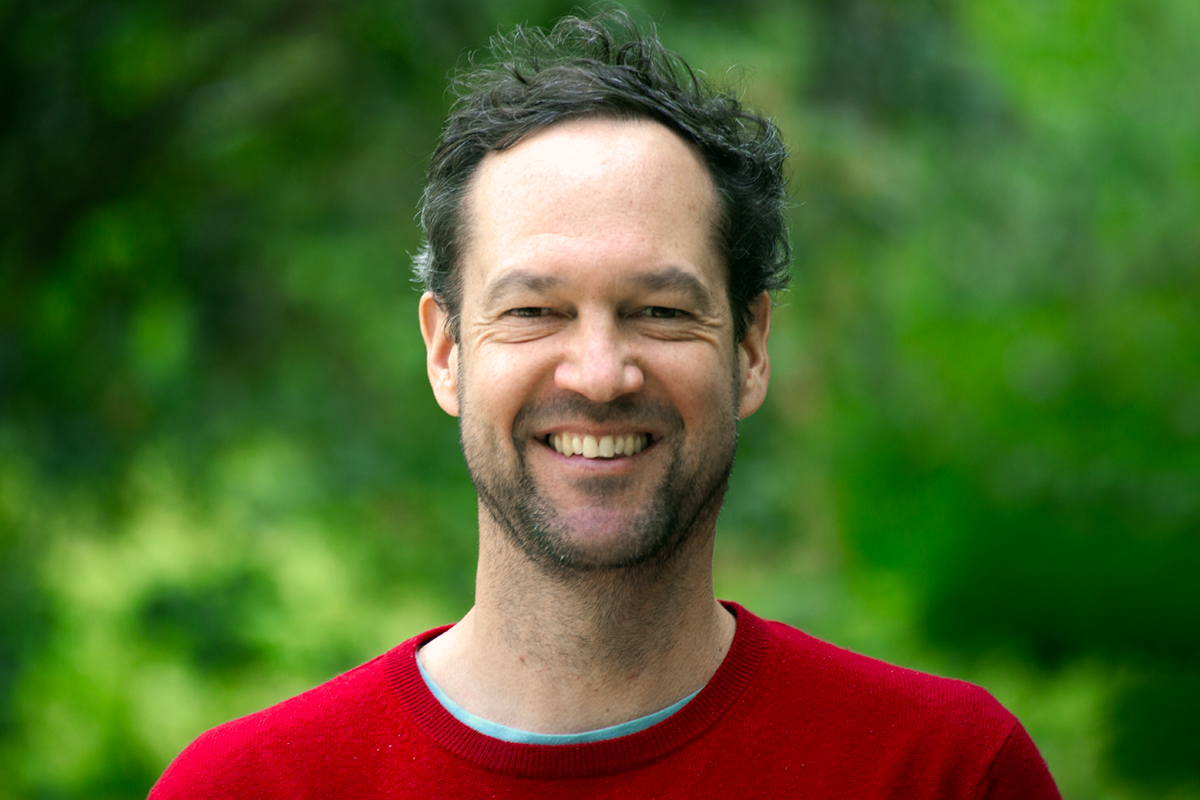

HELP Research: Overview
HELP’s interdisciplinary and collaborative research aims to develop and answer important questions about healthy child development. The centre’s research collaborations foster connections between scientific, government, and community perspectives and priorities while creating unique partnerships and building momentum toward improving child and youth outcomes.
Research at HELP is oriented by the following concepts:
Population Health
Improving the health and well-being of populations requires a focus on patterns and trends in health, as well as the root causes of health outcomes. This approach pays attention to the complex interplay between many determinants of health, aiming to improve the health of populations and reduce inequities between population groups.


Social Determinants of Health
The social determinants of health are the factors that influence children’s health and well-being through the conditions in which they are born, grow, work, live, and age, and the broader societal forces and systems that shape their daily lives. These include a range of socio-economic circumstances such as single-parent households, parental education levels, access to services, adequate housing, and quality child care, experiences of systemic racism and beyond.
Biological Embedding
Children’s early experiences, including those before birth, have lasting effects on their social, emotional and physical health, and social outcomes. Biological embedding, a central concept in life course research, describes the process by which early life experiences and environments get “under the skin” altering biology and development and influencing health and well-being over the long-term.


Equity
HELP data show that avoidable and persistent inequalities in children’s developmental health and well-being exist in BC and have been sustained over time. The link between social determinants of health and healthy development is strongly supported by research, including our own. HELP’s research focuses on early childhood development as a major determinant of lifelong health and well-being.
Core Research Areas
Early Experiences and Environments
The circumstances into which children are born influence their exposure to physical and social environments that can either promote or compromise healthy development. Researchers at HELP developed and employ the Total Environmental Assessment Model of Early Childhood Development (TEAM-ECD) to explore, from ‘cell to society’, the differences that make a difference in promoting equitable and healthy development for children and youth.
Research Questions
-
How can we widen the understanding of impacts of social determinants of health on child development by including large populations of children and diverse or typically underrepresented population groups?
-
What are the protective factors (e.g., supportive relationships with peers, adults) that can buffer children from risk and promote resilience?
-
How is children’s use of after-school time (e.g., extracurricular engagement, screen time) related to positive development?
-
How does outdoor play influence children's health, well-being and development?
-
What mechanisms promote well-being and positive mental health in children and families?
-
How do children's experiences in school (e.g., relationships with teachers and in the school community) contribute to their positive development and well-being?
- Socio-economic determinants of health (I.e. influences of poverty, social gradients)
- Early childhood development, childhood experiences & environments
- Early adolescent and adolescent development, experiences and assets (I.e. school-based experiences, social and emotional learning programs in schools).
- Mental health and social emotional development
Developmental Trajectories
What happens to children in their earliest years is critical for their development throughout the life course. HELP researchers explore the health of groups of children across the early part of the life course, and the impacts their early development can have on health and social outcomes into adolescence and adulthood. This approach includes linking population-level Monitoring System to administrative health and education data, which facilitates the exploration of the specific factors that affect longitudinal development and shines a light on the root causes of health and well-being.
Research Questions
-
How do early experiences and early childhood vulnerabilities influence later health and educational outcomes?
-
How do experiences in middle childhood shape developmental outcomes in adolescence and emerging adulthood?
-
How would graduation rates differ if vulnerability in early childhood was reduced?
-
What are the prevalence and predictors of mental health and well-being across the early life course, including social determinants of mental health?
-
How does mental health and well-being in late adolescence predict mental health and well-being outcomes in emerging adulthood?
- Child development trajectories
- Mental health trajectories
- Education and academic trajectories
Policy and Practice
Investments in children across the early life course have been demonstrated to have substantial positive effects on long-term population health. HELP researchers investigate the governmental and organizational policies and practices that influence child development, aiming to better understand and address how our social and economic systems are doing in supporting children and families.
Research Questions
-
What has been the effect of full-day Kindergarten on children’s trajectories from kindergarten to Grade 12?
-
How do we design cities and play spaces to support rich outdoor play opportunities?
-
How do federal and provincial housing policies contribute to supporting equitable and health child development?
-
How can we support individual skill-building and structural supports to promote positive youth well-being trajectories?
-
How does ecological research on children’s developmental trajectories inform provincial investments and community-based services and networks to positively affect the health and well-being of children and their families?
- Programs and services for child care and early childhood development
- Social and economic policy
- Education policy (I.e. provincial mental health promotion policy and investment)
Community Engagement, Development and Systems
Community Systems research focuses on the workings of the complex, multi-level community systems influencing child development. This approach includes working collaboratively with community and academic partners to deepen our collective understanding of the wider systems and networks surrounding children’s developmental health in an effort to generate evidence to inform change.
Research Questions
-
How can innovative methodologies (mixed methods, systems science, community-based, participatory, etc.) be employed to generate knowledge about the system(s) surrounding child developmental vulnerability and trajectories?
-
What are the most 'effective' strategies for mobilizing (translating, exchanging) knowledge in community to support capacity building for healthy communities?
- Complex and community systems
- Developing healthy communities
- Compassionate Systems Leadership
- Connections between health care and education systems, especially for children with health disorders
Measurement and Research Methodologies
HELP researchers design and test population-level survey tools, develop valid and reliable data reporting techniques and identify the most appropriate methods for linking data, developing indices, and evaluating promising policies and interventions.
Research Questions
-
How can we measure meaningful change over time in children’s vulnerability scores and indices of well-being?
-
Which variables should be included in the development of indices of neigbourhood demographics and socioeconomic status that are tailored to early childhood development?
-
Which characteristics of children’s contexts and experiences before school entry are most predictive of on-track development at kindergarten?
- Psychometric properties of population health monitoring system tools
- Evaluating indicators of early development
- Data linkage methods across HELP tools, and with non-HELP administrative datasets
- Educator-reported observation, reflection, and planning methodology
What are the differences that make a difference? - Dr. Clyde Hertzman
HELP’s Historical Research Milestones
Since its establishment in September 2000, HELP has achieved a number of research milestones that have supported policies and practices in governments and communities to better understand and work towards more positive developmental outcomes for children, not only in BC and Canada but globally as well.
Total Environment Assessment Model for Early Child Development (TEAM-ECD)
Research has helped us to better understand how everything from the smallest cell to the more complex growing child is influenced by the environments in which they spend their time. The Human Early Learning Partnership has developed the Total Environment Assessment Model of Early Child Development (TEAM-ECD) as a way of understanding these environments and their qualities that play a significant role in influencing early development. Read the TEAM-ECD Research Brief.

15 x 15: A Comprehensive Policy Framework for Early Human Capital Investment in BC
In 2009, HELP undertook a ground-breaking research project that quantified the costs and benefits of addressing early vulnerability in BC. The resulting report 15 by 15: A Comprehensive Policy Framework for Early Human Capital Investment in BC dramatically illustrated why all of us – individuals, businesses and governments – should care about the real brain drain in BC today resulting from early vulnerability. Read the report.
Child Rights
Working with international partners, and led by Dr. Clyde Hertzman, HELP developed a child rights indicators framework to assist States Parties in meeting their obligations under the UN Convention on the Rights of the Child. Find more information here on the Early Childhood Rights Indicators website or read the 2012 Early Childhood Rights Indicators Research Brief.
Key Contacts

Mariana Brussoni
Director, HELP & Professor, Department of Pediatrics & SPPH, UBC

Anne Gadermann
Associate Professor, UBC

Brenda Poon
Assistant Professor (Partner), UBC

Christine Voss
Assistant Professor, Department of Pediatrics, UBC

Emily Jenkins
Associate Professor, UBC

Eva Oberle
Associate Professor, UBC

Martin Guhn
Associate Professor, UBC
